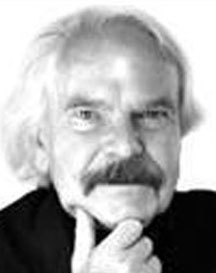On June 2, 2005, more than 500 economists, including three Nobel prize winners, issued an open letter that called attention to a report on the economic benefits of treating marijuana like alcohol and tobacco – billions and billions in budgetary savings and gains in new tax revenue.
The report, by Harvard’s Jeffrey Miron, an expert on the budgetary implications of enforcing the prohibition of illicit drugs, provided fodder for a long-running debate on the pros and cons of legalizing marijuana but did little to impress the people to which it was addressed – President George W. Bush, Congress, governors and state legislatures. One reason: the economy was humming along nicely in the first half of 2005.
That’s no longer the case and Miron has just published a follow-up report for the Cato Institute, a libertarian think tank in Washington, that revisits the economic case for ending prohibition at a time when state and federal governments stagger under enormous deficits and America’s national debt is at its highest since World War Two. Legalizing all drugs, Miron says, would yield $41.3 billion a year in savings on government spending on law enforcement and $46.7 billion in tax revenue.
For marijuana alone, say Miron and his co-author Kate Waldock of the Stern School of Business at New York University, savings from law enforcement – less time spent on arrests, fewer people booked and jailed – would total $8.7 billion a year. New taxes would bring in roughly the same. In the overall scheme of America’s fiscal troubles, these are relatively modest sums but in times of stress, every bit counts.
How much money matters was made clear by Arnold Schwarzenegger, the governor of California, on the first day of October when he signed a bill that provides for more lenient treatment of Californians caught with small amounts of marijuana. “In this time of drastic budget cuts,” he said in a statement, “prosecutors, defence attorneys, law enforcement and the courts cannot afford to expend limited resources on a crime that carries the same punishment as a traffic ticket.”
That makes possession of an ounce or less of marijuana almost legal – it will no longer be an “arrestable” offence and will not result in a criminal record. The maximum fine will be $100. For advocates of full legalization that is not enough, though, and marijuana reform policy groups have joined in a spirited effort to get Californians to the polls on November 2 to vote on Proposition 19, the Regulate, Control and Tax Cannabis Act of 2010. Opinion surveys have been inconsistent.
A Reuters/Ipsos poll on October 5 showed 53 percent against the measure, 43 percent for. Just a week earlier, a poll by the Public Policy Institute of California showed almost the exact opposite: 52 percent in favour, 41 percent against, 7 percent undecided. The one thing that seems clear is that nobody really knows what would happen if the measure were adopted.
Uncharted waters
Passage of Proposition 19 would land California in truly uncharted waters. America’s most populous state (and the one with the biggest budget hole) would be the first jurisdiction in the world to make it legal for citizens over 21 to use and grow a limited amount of marijuana (on 25 square feet per private residence) for personal consumption. Not even the Netherlands, the Mecca of marijuana aficionados, has gone quite that far.
In countries from Latin America to Europe, the trend has been towards “decriminalization” of personal use, a word that essentially means looking the other way, rather than formal legalization. Production and distribution, under the decriminalization model, remain in the criminal underground.
If California voted for Proposition 19, there is a long list of thorny questions of federal and international law that have not been answered and could keep an army of lawyers busy for a long time. In an unusual joint op-ed piece in the Wall Street Journal this week, nine former heads of the Drug Enforcement Administration (DEA) – every chief since the agency’s 1973 inception – said the California initiative would violate the constitutional clause that gives federal law supremacy over state law.
The administration of President Barack Obama, the ex-chiefs said, should prepare to follow the course it took when Arizona introduced a harsh anti-immigration law and Washington filed a suit to declare it null and void, arguing that federal law trumps state law and immigration is a federal matter.
That former DEA heads would be upset by changes in attitudes towards marijuana comes as no surprise. They were involved in running a war on drugs that has cost billions, brought violence and bloodshed to producer countries, achieved little, and was termed “an utter failure” by Obama when he was running for a seat in the US Senate in 2004.
What has come as a surprise to some is opposition from part of California’s cannabis community to legalization. Like the economists’ case for budgetary savings and fresh tax revenues, opposition revolves around money. Clandestine growers who have turned California’s Humboldt County into the marijuana equivalent of wine’s Napa Valley fear that legalization would drive down prices and thus cut into their income.
Such fears were deepened by a study this summer by the RAND Corporation, a California-based think tank, on the possible effects of legalization. RAND researchers said the price of high-quality marijuana could drop by as much as 80 percent. Before tax, of course. (Bernd Debusmann is a Reuters columnist. The opinions expressed are his own) (You can contact the author at Debusmann@Reuters .com)










